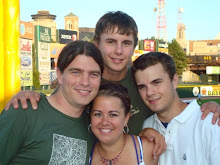...and that magical roll just continues on and on. Another great day for BP and only a slight bout of nausea. Alyssa hasn't had a single reading over 130 for a week now! Removing this issue should help make her Peritoneal Dialysis training go much easier this week. Keep those toes and fingers crossed!
We've mentioned Peritoneal Dialysis many times, but haven't really explained how it differs from the more traditional Hemodialysis that Alyssa has been receiving since falling ill; and more importantly, how it should benefit her. So let's get stared with Dialysis 101.
Renal failure refers to temporary or permanent damage to the kidneys that results in loss of normal kidney function. There are two different types of renal failure - acute and chronic. Alyssa has acute renal failure which typically has an abrupt onset, but is potentially reversible. Chronic renal failure progresses slowly, over at least three months, and can lead to permanent renal failure. The causes, symptoms, treatments, and outcomes of acute and chronic are different.
Healthy kidneys clean your blood by removing excess fluid, minerals and toxins. They also make hormones that keep your bones strong and your blood healthy. As your kidneys fail, harmful toxins build up in your body, your blood pressure may rise, and your body may not make enough red blood cells. When this happens, you need dialysis treatments to replace the function of your failed kidneys. Dialysis removes substances such as water, salts, and waste products (from the body’s normal metabolism), which build up in patients with failing kidneys.
There are two primary forms of dialysis treatments available.
Hemodialysis (HD), is where the blood is cleaned outside the body and then returned to the body. This treatment, done in a hospital, or a dialysis clinic, is normally done 3 times a week, with each session taking about 4 hours. In HD, a machine and a filter are required, as well as a system to get the blood out of the body, and return the cleaned blood to the patient. In most patients, access to the blood is done by inserting two needles into blood vessels on the forearm. Alyssa's access is currently through her Permcatheter that is also used for her plasmapheresis treatments. But this is not a long term solution due to infection risks that are inherit with this type of catheter. Those awful needles are looming in Alyssa's future!
Peritoneal Dialysis - Continuous Cyclic Peritoneal Dialysis (CCPD) is the form of PD that Alyssa will receive. Through the use of a machine called a cycler, dialysate fluid will be instilled through a soft, hollow tube, that has been surgically placed into Alyssa's lower abdomen near the navel. The solution will remain in the cavity for several hours. During this time, waste products and excess fluid pass from the blood into the peritoneal cavity. After the completed dwell time (period the dialysis solution is in the abdomen), the solution will be drained from the cavity. This process is called an exchange. The process is repeated again three to four times per night. In theory, Alyssa will sleep through the whole process as the cycler automatically controls all the various steps. In Alyssa's case, she will need to perform CCPD every night for approximately eight hours per night.
Why switch from Hemodialysis to PD? For Alyssa there are many advantages...since she doesn't have to go to a dialysis center for treatment, CCPD gives her more control. She can do treatments at home, at work or on trips. It allows her to have a normal work schedule. It's much gentler on her body as the process is done over eight hours versus three. But, the biggest reason for Alyssa - NO NEEDLES!
She is very excited to make the change this week! We'll keep you posted as to her progress.
dd
Sunday, April 5, 2009
Subscribe to:
Post Comments (Atom)

thats some good news.. but i will be seeing you very soon!! love you lyss
ReplyDeleteHi this is Jill in Arkansas. You have done a fabulous job with this blog. You explain everything so well. I am soooo glad Alyssa is doing better. She has been through alot. I always tell her once we are both better I want to meet her. She has helped me so much through this terrible experience. But we are both going to come out on top. Thank you for this blog. Evertime my family or friends has questions, I use your blog as a resource. May God bless Alyssa and her family.
ReplyDeleteMuch Love,
Jill in AR